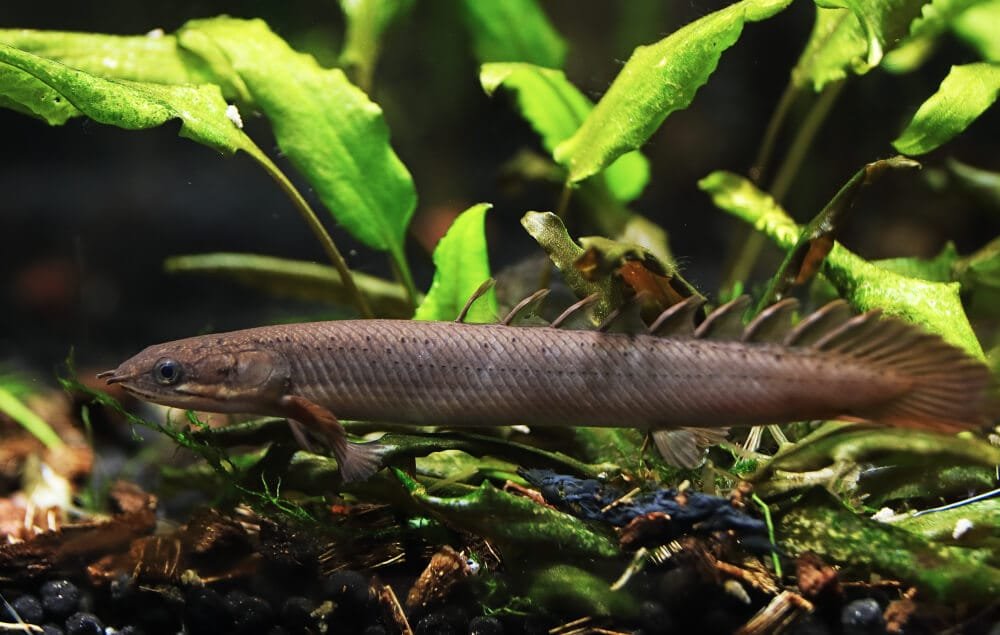Are you a fish enthusiast looking to embark on a new hobby? Before diving into the world of fishkeeping, it’s important to take a moment to ponder the ethical considerations that come along with it. Whether you are a beginner or an experienced fishkeeper, this article will take you on a journey through various ethical aspects such as animal welfare, sustainability, and environmental impact. Join us as we explore the world of fishkeeping from an ethical perspective, ensuring that our underwater friends are well-cared for and our actions align with our values.
Fishkeeping and Animal Welfare
Fishkeeping is a popular hobby that brings joy and beauty into many people’s lives. As fishkeepers, it is important to understand the ethical considerations involved in caring for our aquatic pets. By considering the welfare of the animals we keep, we can ensure they live fulfilling lives while also promoting conservation and sustainability.
Understanding Animal Welfare
Animal welfare refers to the well-being of animals and the conditions in which they are kept. It encompasses both their physical and psychological needs. When it comes to fishkeeping, understanding the specific needs of fish species is crucial in ensuring their welfare. Fish have complex sensory systems and behavior patterns that must be taken into account when providing for their needs.
Fish as Sentient Beings
Contrary to popular belief, fish are not simple creatures without emotions or intelligence. Research has shown that fish are sentient beings, capable of experiencing pain, pleasure, and stress. They have social hierarchies, form complex relationships, and even have the ability to learn and remember. Recognizing fish as sentient beings is the first step in treating them with respect and ensuring their welfare.
The Impact of Fishkeeping on Animal Welfare
Fishkeeping, when done responsibly, can have a positive impact on animal welfare. By creating suitable tank environments and providing proper care, we can enhance the lives of the fish in our care. However, fishkeeping also comes with potential risks and challenges that must be addressed to minimize any negative impact. It is our responsibility as fishkeepers to prioritize the well-being of our aquatic pets and continually educate ourselves on best practices.
Sustainable Sourcing and Conservation
To promote fish welfare, it is essential to consider sustainable sourcing and conservation efforts.
Sourcing Fish Responsibly
When obtaining fish for our tanks, it is important to source them from ethical and responsible suppliers. Look for fish that have been bred in captivity rather than those caught in the wild. Captive-bred fish are generally healthier and have a higher chance of survival compared to wild-caught counterparts. Additionally, ensure that the supplier follows ethical practices and avoids supporting illegal or destructive fishing methods.
Promoting Conservation Efforts
Supporting conservation efforts is another significant aspect of ethical fishkeeping. Many fish species are endangered or threatened due to habitat destruction, overfishing, and pollution. By getting involved in organizations dedicated to fish conservation, we can contribute to the protection of these species and their natural habitats.
Supporting Sustainable Aquaculture
Sustainable aquaculture, or fish farming, can help reduce the strain on wild fish populations. Look for fish that have been raised in farms practicing responsible aquaculture. These farms prioritize the health and welfare of the fish, as well as minimizing the environmental impact of their operations. By supporting sustainable aquaculture, we can help ensure a steady supply of fish without negatively impacting the wild populations.
Appropriate Tank Conditions
Providing a suitable tank environment is crucial for the well-being of the fish in our care. Several factors should be considered to ensure their comfort and health.
Providing Adequate Space
Fish require enough space to swim and engage in natural behaviors. Each fish species has different space requirements, so it is essential to research and provide an appropriate tank size for the species you keep. Overcrowding can lead to stress, aggression, and weakened immune systems, compromising the overall welfare of the fish.
Maintaining Proper Water Quality
Clean and properly filtered water is vital for the health of fish. Regular water testing and maintenance are necessary to ensure optimal water quality. Monitoring parameters such as ammonia, nitrite, nitrate, pH, and temperature is crucial for preventing water-related health issues and maintaining the well-being of the fish.
Regulating Water Temperature and Parameters
Different fish species have specific temperature requirements. It is crucial to set and maintain the water temperature within the recommended range for the species you keep. Consistency in water quality parameters such as pH, hardness, and salinity is also important, as fluctuations can negatively affect the health and well-being of fish.
Offering Sufficient Hiding Places
Creating a tank environment that mimics natural habitats is essential for the welfare of fish. Providing ample hiding places, such as caves, plants, or driftwood, allows fish to retreat and feel secure. This helps reduce stress levels and encourages the display of natural behaviors.
Creating a Suitable Tank Environment
Beyond the basic needs, it is important to consider the specific requirements of different fish species. Some fish prefer densely planted tanks, while others require open swimming spaces. Researching the natural habitat and behavior of the species you keep will guide you in creating a suitable tank environment that promotes optimum fish welfare.
Feeding Practices and Nutrition
Proper nutrition plays a vital role in the well-being and overall health of fish. It is important to understand their nutritional requirements and provide a diverse and balanced diet.
Understanding Nutritional Requirements
Different fish species have varying dietary needs. Some are herbivorous, while others are carnivorous or omnivorous. Researching the specific nutritional requirements of your fish species is essential in selecting appropriate food and ensuring their health and well-being.
Offering Diverse and Balanced Diets
A varied diet is crucial for fish to receive the necessary nutrients for growth and optimal health. Providing a mix of high-quality commercial fish food, frozen or live foods, and occasional supplementation with vegetables and fruits will help ensure a balanced diet. Offering different types of food also stimulates natural feeding behaviors and enhances overall welfare.
Avoiding Overfeeding
Overfeeding is a common mistake that can lead to various health issues in fish. Excess food can pollute the water, compromising water quality and increasing the risk of diseases. It is important to feed fish in moderate amounts, considering their size, metabolism, and activity level. Observe the feeding habits of your fish and adjust the amount accordingly to avoid overfeeding.
Preventing Malnutrition
Just as overfeeding can be harmful, underfeeding or providing an inadequate diet can lead to malnutrition. Malnourished fish are more susceptible to diseases, have stunted growth, and may suffer from reduced immunity. Monitoring the condition of your fish and ensuring they receive a well-rounded diet will help prevent malnutrition and promote their overall welfare.
Healthcare and Disease Prevention
Maintaining the health of fish and preventing diseases is crucial for their overall welfare. Regular health assessments, preventive measures, and seeking veterinary care when necessary contribute to their well-being.
Regular Health Assessments
Performing regular health assessments of your fish is important in detecting any signs of illness or stress. Observing changes in behavior, appetite, physical appearance, or the presence of parasites can help identify potential health issues early on. Regular water testing and monitoring of water quality parameters are also vital in maintaining the health of fish.
Preventive Measures and Biosecurity
Prevention is key in reducing the risk of diseases in fish. Maintaining proper water quality, providing a balanced diet, and quarantining new fish before introducing them to the main tank are essential preventive measures. Practicing good biosecurity, such as disinfecting equipment and preventing cross-contamination, further reduces the spread of diseases.
Proper Handling and Transportation
When handling fish, it is important to do so with care and gentleness. Avoid rough or sudden movements that may cause stress or physical injury. During transportation, provide a secure and well-ventilated container to minimize stress and prevent temperature fluctuations. Taking these precautions ensures the well-being of the fish during handling and transportation.
Seeking Veterinary Care When Necessary
Just like any other pets, fish can fall ill or require medical attention. When facing complex health issues or diseases, consulting a qualified aquatic veterinarian is crucial. They have the knowledge and experience to diagnose and treat fish diseases, providing the necessary care for the welfare of the fish.
Educating Fishkeepers
As responsible fishkeepers, it is important to educate ourselves and promote ethical practices within the fishkeeping community.
Responsible Fishkeeping Education
Continuous learning and education about fishkeeping practices are essential for providing the best care to our aquatic pets. Staying updated on advancements in fish welfare, nutrition, and healthcare allows for the implementation of improved husbandry practices. Engaging in educational resources, workshops, and forums helps expand knowledge and promote responsible fishkeeping.
Promoting Ethical Practices
Sharing information and promoting ethical practices within the fishkeeping community is crucial in ensuring fish welfare. Educating others on proper tank conditions, responsible sourcing, and sustainable practices helps raise awareness of the ethical considerations involved. By setting an example and advocating for fish welfare, we can inspire others to prioritize the well-being of their fish.
Encouraging Research and Learning
As the understanding of fish behavior and physiology continues to grow, it is important to support and encourage further research in fish welfare. By funding and participating in studies, we can contribute to expanding knowledge and finding new ways to improve the welfare of fish. Supporting scientific research and learning benefits not only our own fish but also the broader fishkeeping community.
Avoiding Harmful Practices
To ensure fish welfare, it is important to avoid harmful practices and make responsible choices.
Banning Inhumane Fishkeeping Techniques
Some fishkeeping techniques, such as fish bowl or small container keeping, are inhumane and restrict the welfare of fish. These confined spaces limit their natural behaviors and often result in stress and poor health. It is important to avoid such practices and opt for larger, well-maintained tanks that support the overall well-being of the fish.
Discouraging Overcrowding and Incompatible Tankmates
Overcrowding can have serious consequences for fish welfare. It leads to competition for resources, stress, and increased risk of diseases. It is crucial to research the appropriate tank size and compatibility of fish species to avoid overcrowding and ensure the well-being of all inhabitants. Properly researching the species’ social behavior and space requirements helps create a harmonious community tank.
Preventing Invasive Species Introduction
Introducing non-native or invasive species into natural habitats can have devastating ecological impacts. It is essential to avoid releasing fish or aquarium plants into local waterways or ecosystems. Properly disposing of unwanted fish and plants through responsible means prevents their introduction into non-native environments, protecting native species and preserving ecological balance.
Responsible Breeding and Trade
Responsible breeding and trade practices help ensure the welfare of both captive and wild fish populations.
Responsible Breeding Practices
Responsible breeding involves breeding fish in a manner that prioritizes their health and welfare. Breeders should avoid excessive inbreeding, which can lead to genetic defects and poor overall health. Breeding should be conducted with a focus on maintaining and improving the breed’s quality, genetic diversity, and overall vitality.
Avoiding Unwanted and Excessive Breeding
Unwanted and excessive breeding can lead to overcrowded tanks, increased competition for resources, and compromised welfare. Fish breeders and fishkeepers should adopt measures to prevent unintentional breeding, such as separating males and females or using breeding control methods. Responsible breeding practices help ensure the welfare of both the breeding pairs and their offspring.
Ethical Considerations in Fish Trade
The trade of fish involves ethical considerations in terms of sourcing, transportation, and sale. Fish should be sourced from reputable suppliers who prioritize fish welfare and promote sustainable practices. Proper transportation and handling methods should be employed to minimize stress and health issues. Ethical considerations should guide the sale of fish, ensuring they are provided to suitable and knowledgeable fishkeepers who can provide the necessary care.
Preventing Illegal and Unregulated Trade
Illegal and unregulated trade of fish contributes to the exploitation of wild fish populations, habitat destruction, and the spread of diseases. It is important to support legal and regulated trade practices that prioritize fish welfare, ensure sustainable sourcing, and follow established guidelines. By avoiding illegal or unregulated trade, we can contribute to the conservation and protection of fish species worldwide.
Ethical Considerations in Aquatic Research
Aquatic research plays a significant role in expanding our understanding of fish behavior, physiology, and welfare. Ethical considerations in research are essential to ensure the well-being of research organisms.
Ensuring Ethical Treatment of Research Organisms
Research involving fish should prioritize the welfare of the organisms involved. Researchers should provide appropriate housing and husbandry, minimize handling stress, and use humane methods during experiments. Ethical review boards play a crucial role in ensuring that research protocols meet ethical standards and prioritize the welfare of the fish.
Minimizing Harm and Discomfort
Efforts should be made to minimize harm and discomfort during experimental procedures. Proper anesthesia and analgesia techniques should be employed to reduce pain and stress. Researchers should strive to refine experimental techniques, replacing invasive methods with non-invasive alternatives whenever possible, to minimize any negative impacts on fish welfare.
Promoting Alternative Research Methods
Advances in scientific technology provide alternative methods that eliminate or reduce the need for experiments involving live fish. The development and promotion of in vitro, computer modeling, and non-invasive imaging techniques help further research while minimizing harm to fish. Researchers and institutions should actively support and utilize these alternative research methods to align with ethical considerations.
Balancing Research Benefits and Animal Welfare
Ethical considerations in aquatic research require a careful balance between the potential benefits gained through scientific knowledge and the welfare of the fish involved. Researchers should critically evaluate the necessity of each experiment and ensure that the potential benefits justify any potential adverse impacts on the well-being of the fish. This balance provides a framework for responsible and ethical research practices.
Ethical Considerations in Fish Release
Releasing captive fish into the wild can have ecological implications, and careful consideration must be given to ensure the welfare of both the released fish and native species.
Releasing Captive Fish Responsibly
When considering the release of captive fish into the wild, it is essential to assess the potential ecological impacts. Only release fish if it is legal, if the fish is native to the area, and if doing so will benefit the local ecosystem. Responsible fish release should be done with a thorough understanding of the potential consequences and adherence to legal and ecological guidelines.
Avoiding Harm to Native Species
Releasing non-native or invasive fish species can have severe consequences for native ecosystems. Competition for resources, predation, and disease transmission are just a few of the risks associated with releasing non-native fish. It is vital to avoid such releases to protect native species and maintain the ecological balance of natural habitats.
Considering Ecological Impact
Before releasing captive fish into the wild, it is crucial to consider the ecological impact on the receiving habitat. Assessing factors such as population dynamics, habitat suitability, potential disease transmission, and available resources helps evaluate the potential consequences of releasing fish into the ecosystem. Responsible fishkeepers should prioritize the long-term well-being of both the released fish and the native species.
Adhering to Legal and Ecological Guidelines
Releasing fish into the wild should always adhere to legal requirements and ecological guidelines. Different regions have specific regulations and restrictions regarding fish releases. It is important to consult local authorities, conservation organizations, and ecologists to ensure compliance with applicable laws and guidelines. By doing so, fishkeepers can help protect native species and ecosystems while also respecting ethical considerations.
In conclusion, fishkeeping is not just a hobby but a responsibility to ensure the welfare of the fish in our care. By understanding animal welfare, promoting sustainable practices, providing appropriate tank conditions, feeding practices, and healthcare, educating others, avoiding harmful practices, and considering ethical aspects in breeding, aquatic research, and fish release, we can ensure the well-being of our aquatic pets while also contributing to conservation and the protection of fish species worldwide. Together, let’s strive for responsible and ethical fishkeeping practices that prioritize the welfare of these wonderful sentient beings.




